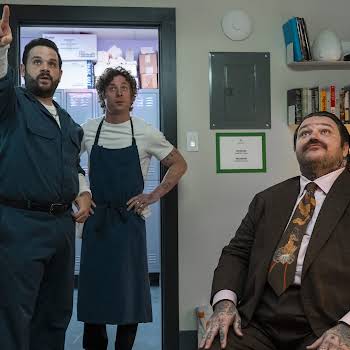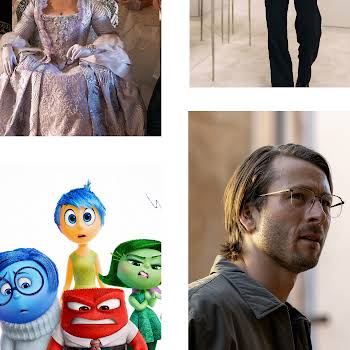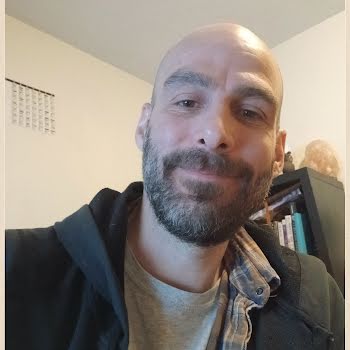
By Jennifer McShane
31st Jul 2021
31st Jul 2021
Six years after her high-profile criminal prosecution ended in acquittal, Amanda Knox still feels like she’s standing trial in the court of public opinion.
In Matt Damon’s new movie Stillwater, he is directly involved in the case of a young woman in Europe who is imprisoned abroad for a murder. The murder, she says she didn’t commit.
Knox is accusing writer/director Tom McCarthy of using her now-infamous story and its close reading of her circumstances comes at the “expense of her reputation.” McCarthy admits he was directly inspired by Knox’s saga.
Who is Amanda Knox?
The name Amanda Knox might only be familiar to those who have watched her Netflix documentary. It’s a strange thing to take in, primarily because the whole thing feels like it should be a movie, but it occurred in real life. At the heart of it, a young woman, British national Meredith Kercher, was brutally murdered and Knox was caught in the middle. Knox has always maintained her innocence; she was a naive student abroad who became trapped in an endless nightmare.
And even though she was acquitted in Italy in 2015, there are still those who say the outcome should have gone another way. The case still causes debate and regardless of which side of the fence you sit, Knox was never going to be let off the hook easily.
“Does my name belong to me?”
The exact details do differ slightly — the story follows the teenager’s father (played by Damon) and his desperate attempt to save his child, and the story takes place in Marseille, France — but it’s hitting too close for home for Knox, who shared her frustrations with her followers on Twitter and in a self-penned piece for The Atlantic.
Does my name belong to me? My face? What about my life? My story? Why does my name refer to events I had no hand in? I return to these questions because others continue to profit off my name, face, & story without my consent. Most recently, the film #STILLWATER.
/ a thread
— Amanda Knox (@amandaknox) July 29, 2021
“Does my name belong to me? Does my face? What about my life? My story? Why is my name used to refer to events I had no hand in? I return to these questions again and again because others continue to profit off my identity, and my trauma, without my consent. Most recently, there is the film Stillwater, directed by Tom McCarthy and starring Matt Damon and Abigail Breslin, which was, in McCarthy’s words, “directly inspired by the Amanda Knox saga.” How did we get here?” she wrote.
Knox takes offense in an indirect source for the storyline, writing that because she was acquitted by Italian courts, any narrative inspired by her story shouldn’t involve an actual crime being committed. Doing so, she says, only adds to the ongoing notion that she was somehow guilty in the murder.
“I had been acquitted in a court of law, but sentenced to life by the court of public opinion as, if not a killer, then at least a slut, or a nutcase, or a tabloid celebrity.”
“In freedom, I had become a pariah,” she says. “Looking for work, going back to school, buying tampons at the pharmacy, everywhere I went I met people who already thought they knew who I was, what I’d done or not done, and what I deserved. I was threatened with abduction and torture in broad daylight; I was threatened with having Meredith’s name carved into my body… All over the world, people believed they knew me, a warped assumption that turned me into a monster to some and a saint to others.”
Controlling her narrative
Like anyone else, Knox is entitled to control – or at the very least, try to control – her own narrative. When projects are even loosely based around real-life events, especially a trial and conviction that still divides as it does, it robs Knox of that and makes her own life and story a footnote in the grand scheme of events.
By fictionalizing away my innocence, my total lack of involvement, by erasing the role of the authorities in my wrongful conviction, McCarthy reinforces an image of me as a guilty and untrustworthy person.
— Amanda Knox (@amandaknox) July 29, 2021
“By fictionalizing away my innocence, my total lack of involvement, by erasing the role of the authorities in my wrongful conviction, McCarthy reinforces an image of me as a guilty and untrustworthy person,” Knox tweeted.
“And with Matt Damon’s star power, both are sure to profit handsomely off of this fictionalization of ‘the Amanda Knox saga’ that is sure to leave plenty of viewers wondering, ‘Maybe the real-life Amanda was involved somehow.'”
“Fourteen years ago I was wrongfully convicted of murdering my roommate. Ever since, the world has believed it can tell me who I really am,” she says.
At the very least, Knox deserves a chance to distort that on her own terms.























